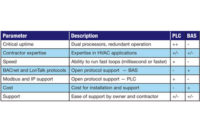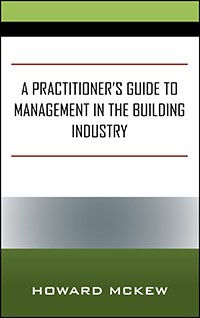The question about the economics (i.e., ROI) of an in-house BAS department is a challenge and may be the topic of a future column or article. But the more interesting question for this month is what skills should owners look for to better support their building systems especially controls and BAS.
There are a series of skills required to properly manage a BAS. These range from the ability to readily understand mechanical systems and to use the BAS as a tool for effective building management, on to the ability to readily troubleshoot and program these systems. Many believe that there is a minimal level of BAS expertise that every owner needs on staff; however, we would take this further and say that the majority of the facility management staff should have some amount of BAS expertise, depending on their job description. These would include:
Tier I
• Familiarity with the BAS: how to access the system and navigate.
• Ability to utilize system graphics and tables to evaluate the operation of key systems including air handlers, VAV boxes, chiller, and boiler plant.
Beyond these skills come those that every advanced technician or supervisor should have.
Tier II
• Be able to make setpoint changes (either temporary or permanent) in response to problem. Examples of setpoints include space temperatures, box flow setpoints, schedule start/stop times, and air handler and plant operating parameters.
• Utilize reports and trends to track system operation and identify potential problems.
• Utilize the system logs (alarms and events) to deal with a of range problems including parameters, communications failures, etc.
• Be able to back up and restore controllers.
Finally, there is an advanced set of skills. Tier III skills are skills which owners may choose to provide in house, or they may rely on a servicing contractor to assist in providing them. These include:
Tier III
• The ability to troubleshoot and tune a PID loop.
• View, analyze, and modify the programming logic in a controller.
• Modify or develop and populate a system graphic or report.
• Add a new controller or integrated system to the BAS.
• Analyze communications issues.
The skills in tiers I and II are essential for any organization to have in house. Those of Tier III are also essential but can be provided either contractually or internally. Why are these skills so important? Well, controls are a key element in achieving high-performance building operations, and it is an element that needs to be applied daily in order to achieve this “high performance.” Providing this level of attention has many benefits, including reduced energy costs through improved efficiency as well as improved support for the facility’s mission (including uptime, comfort, and productivity).ES








